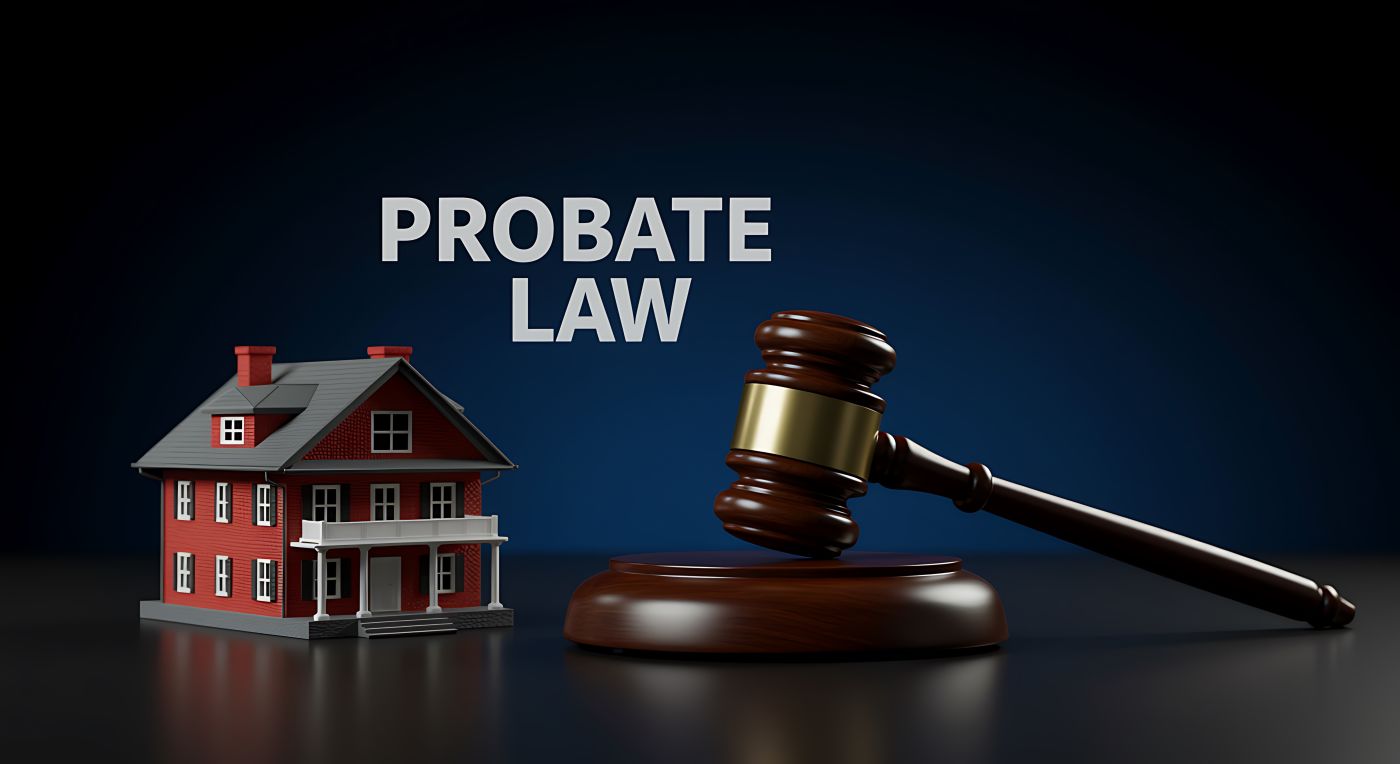When parents pass away, dealing with the probate of their estate can elicit intense emotions and induce stress while you're still grieving their loss. If you grew up in the home, the process is fraught with even more sadness and anxiety.
However, once the emotional intensity begins to wane, most people acknowledge that holding onto a home where no one resides does not make financial sense. Once you come to this realization, you'll want to initiate the legal process that will allow you (and any other heirs) to legally sell the property.
Sometimes, individuals erroneously believe that if they are named as beneficiaries in their parents' will, they can automatically sell their home. However, this is not true—unless you co-own the property and appear on the deed in a specific manner.
Barring these conditions, the home and other assets must go through the process of probate according to Florida laws. Probate proceedings in Miami, FL run smoothly when you are working with an experienced probate attorney, who will start by filing the necessary paperwork with the court. A probate judge then appoints the person named in the will as the personal representative (PR), to take charge of handling the estate. Once appointed, the PR can start the process of hiring a Realtor and selling your parents’ home.
As an experienced Miami probate attorney, I help grieving families settle the affairs of their loved ones after their passing and assist them with transferring assets by guiding them through the probate in Florida. Continue reading to learn more, then call us to schedule your strategy session.
Must My Parents' Home Go Through Probate?
If the home's deed is in the name of both your parents or of your last surviving parent, it will most likely go through the probate process in Florida.
However, there are a few exceptions, including:
Your parents placed the home in a trust before they passed, and the successor they named is still alive.
The home's deed is not only in your parent(s)’s name but includes you or another heir, and precisely states that there is “joint tenancy with rights of survivorship.” In that case, the “survivor” of the joint owners (e.g., you) automatically owns 100% of the property as soon as the other joint owner (or owners) passes away.
Why Does Florida Treat Primary Homes Differently from Other Assets?
The home where your parents resided was most likely considered by the property appraiser’s office as “homestead property.” This legal taxation designation in Florida applies to a person’s primary residence.
State law treats homestead property somewhat differently from other assets a person leaves to their heirs. For example, the law requires that all heirs, not just the personal representative, must sign the deed that transfers the home at the time of its sale. (The PR can transfer all other assets without the involvement of the other heirs, although of course, those heirs receive whatever share of the estate they are left in the will.)
Once the judge appoints the PR and the home sells, the probate attorney who handled the real estate closing will properly distribute all assets, under the guidance and consent of the probate court.
What are the Types of Probate in Florida and How Do They Impact Real Estate Inheritance?
Clients often ask us how long the probate process takes in Florida. Although it generally moves fairly quickly, the length of time required depends on the size and complexity of the decedent’s estate and the type of probate required based on these considerations.
Formal Probate Administration
In Florida, most estates undergo formal administration, a process that involves:
Inventorying and valuing a decedent’s assets,
Notifying potential creditors of the decedent’s passing,
Paying off outstanding debts and taxes, and,
Distributing assets to beneficiaries under court supervision.
When a probate estate includes a home, the judge initially grants the beneficiaries status as the new owners, making them eligible to sell or rent the property or keep it for their use.
Formal administration usually takes between 6 to 9 months to complete. However, you can list the home on the market (even if proceeds cannot be distributed to heirs) during this time.
Summary Administration
Per Florida statutes, an estate can undergo summary administration (a simplified probate process) if the estate is worth under $75,000 or if the decedent died more than two years earlier.
Since the final deadline for creditors’ claims in Florida is two years after the decedent’s passing, summary administration doesn’t need to consider creditors' claims, and for this and other reasons, it is a faster process.
Maintaining the Home During the Probate Process
When a house is involved in a probate, the heirs must protect the asset to prevent it from being damaged or foreclosed during the probate process.
Protecting the asset includes:
Paying monthly maintenance, taxes, mortgage, insurance, electricity, and other fees concerning the home.
Maintaining the lawn and exterior of the home.
Securing the home to prevent squatters from taking up residence.
Asking a neighbor or another nearby resident to keep an eye on the property.
The estate's personal representative must continue to make monthly mortgage payments. If they fail to make these monthly mortgage payments, the home could end up in foreclosure.
Inheriting a Heavily Mortgaged Home
During probate, some clients may learn that their parent's property had a mortgage, even if they lived in it for many years because they refinanced it or took out a home equity line (aka a second mortgage) at some point.
In specific cases concerning a heavily mortgaged property with a potentially low sales price, making mortgage payments to protect the heirs' future ownership may not make sense since they can't sell the home at a profit.
In this type of instance, the probate attorney can negotiate with the mortgage holder to get them to foreclose on the property, absolving the heirs from making future payments. Under Florida law, the lender cannot claim a person’s personal funds if they forego paying a mortgage on inherited property. The lender simply takes the property.
Do I Need to Hire a Miami Probate Lawyer?
Florida probate cases almost always require a knowledgeable probate attorney, who:
Helps the personal representative get appointed
Assists with the legal paperwork that leads to the settlement of the decedent’s affairs
Works to resolve debtor claims
Efficiently takes care of all probate court requirements, thereby speeding up the process
Resolves conflicts between beneficiaries or between beneficiaries and the PR or beneficiaries and others not named in the will.
Working with an experienced Miami probate lawyer can save you time, hassle, and money. If you are the heir to an estate, contact a reputable attorney as soon as possible.
Denise Jomarron Legal Group: Your Miami Probate Lawyers
Have you been searching online for "probate lawyers in Miami, Florida?" Look no further than the Denise Jomarron Legal Group. Our experienced and knowledgeable probate attorney has handled multiple probate matters and probate cases with compassion, personal attention, and excellent service. Let us provide customized solutions for your unique probate matter and alleviate the stress and grief that arise from probate administration in the wake of a loved one's death. Call us or complete our online form to schedule a consultation.
The information in this blog post (“post”) is provided for general informational purposes only and may not reflect the current law in your jurisdiction. No information in this post should be construed as legal advice from the individual author or the law firm, nor is it intended to be a substitute for legal counsel on any subject matter. No reader of this post should act or refrain from acting based on any information included in or accessible through this post without seeking the appropriate legal or other professional advice on the particular facts and circumstances at issue from a lawyer licensed in the recipient’s state, country, or other appropriate licensing jurisdiction.
Denise Jomarron Legal Group
4300 Biscayne Blvd Ste 305
Miami, FL 33137-3255
https://djlegalgroup.com



